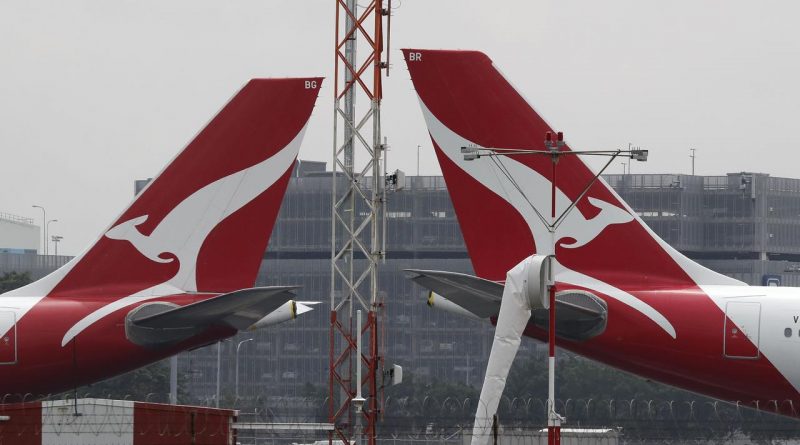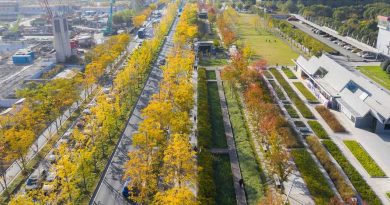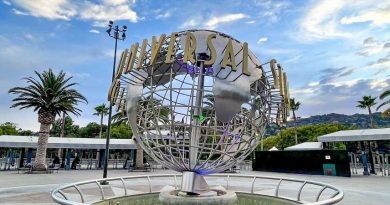Trans-Tasman Bubble: Corridor between Australia and New Zealand officially opens
It’s been a gruelling wait, but after 414 days since the Federal Government placed a ‘do not travel’ ban on Australians travelling overseas, residents will be given the opportunity to dust off their passports.
From today, a two-way travel corridor between Australia and New Zealand will come into effect, having been in the works since early in the pandemic but put on ice on multiple occasions due to COVID-19 outbreaks in both New Zealand and Australia.
RELATED: Auckland Airport’s big changes for Australia flights
Travel across the ditch is back, and for thousands of international travel thirsty Australians, the corridor couldn’t have come any sooner. Picture: NCA NewsWire/Bianca De MarchiSource:News Corp Australia
RELATED: Qantas boss hints at our next travel bubbles
The restoration of the bubble between both nations has been labelled “monumental” and a “day of revival” by members in the tourism industry, which has been decimated since the COVID-19 pandemic was declared.
Prime Minister Scott Morrison said the start of the trans-Tasman bubble across the ditch is a “milestone” even and a key move in both tourism and economic recovery for both nations.
“Today’s milestone is a win-win for Australians and New Zealanders, boosting our economies while keeping our people safe and just in time for ANZAC Day,” Mr Morrison said.
“Both countries have done a remarkable job in protecting our communities from COVID and two-way flights are an important step in our road out.”
Mr Morrison said he’d like to allow Australians to travel further overseas for essential purposes in the second half of the year and return without having to undergo hotel quarantine, but they must be vaccinated to travel.
From today, Australians will be allowed to travel to New Zealand on ‘green zone’ flights without seeking an exemption from the current travel ban. New Zealand is the only country Australians can fly to without this exemption. No vaccination is required for travel, however passengers will be required to provide contact information for their time in New Zealand.
Federal Health Minister Greg Hunt said the travel bubble is the” first step” in the process to reopen international borders.
“That is the first step of a progressive opening, an opening which will be progressive, guided by safety, and in partnership with the states and the territories and the Australian people,” he said.
Passengers on ‘green zone’ flights will not be required to quarantine on arrival to New Zealand. Picture: NCA NewsWire/Bianca De MarchiSource:News Corp Australia
In addition to wearing a mas throughout the flight, travellers will also be asked to download and use the NZ COVID Tracer app for use while in New Zealand.
Air New Zealand will launch into the bubble with 30 flights across the Tasman on Monday, carrying more than 5000 people.
Qantas has scheduled 25 flights, while budget airline Jetstar will have four flying across the ditch. Virgin Australia say they will sit tight for a few months before reassessing their schedule.
Jetstar will have a number of flights weekly between Australia and New Zealand. Picture: NCA NewsWire / Damian ShawSource:News Corp Australia
Along with flights, Qantas has also reopened their First Class International lounge for travellers to enjoy. Picture: NCA NewsWire / Damian ShawSource:News Corp Australia
“It’s day one of our revival,” Air New Zealand chief executive Greg Foran told AAP, noting the first day of the bubble would go down in history as one of the most “monumental” days for airline.
“The accumulation of the opening of the trans-Tasman bubble and the start of the Kiwi school holidays has created a real sense of momentum and energy,” the American said.
The first quarantine-free flight to land in New Zealand will be a Jetstar service from Sydney, departing at 6.15am local time before landing before lunchtime in Auckland.
The first Air New Zealand service from Australia lands in Wellington at 1pm.
On a tourism front, the bubble could come at a better time with the ending of JobKeeper in Australia and the start of school holidays in New Zealand.
Trips Down Under is the favourite travel destination for Kiwis, with 1.4 million trips in 2019 bringing a total spend of $2.6 billion.
Who is eligible to travel?
To be eligible to travel on a flight between Australia and New Zealand, a person must have spent the previous 14 days in either Australia or New Zealand. This doesn’t mean, however, that you are required to stay for 14 days once there.
A person must also:
– Not be awaiting the results of a COVID-19 test
– Not have had a positive COVID-19 test in the previous 14 days
– Not be experiencing symptoms of COVID-19, with or without a fever
– Fill out an online declaration form prior to travel for both a flight in to New Zealand and a flight in to Australia
These passengers will be placed on what is being dubbed as ‘green zone flights’ which have no passengers on board who have come from anywhere but Australia in the previous 14 days. The flights are flown by crew who have not been on any high-risk routes for a set period of time.
Do I need to wear a face mask on the plane?
Yes. Face masks are mandatory when you are in an Australian airport and on board international and domestic flights.
New Zealand, which is currently at Alert Level 1, requires masks on board all international and domestic flights as well as:
– If you are on public transport
– If you are a taxi or ride-share driver
– It is currently not mandatory to wear a face mask in an airport terminal in New Zealand, but it is strongly encouraged.
What happens if there is an COVID-19 outbreak?
New Zealand Prime Minister Jacinda Ardern said certain strategies will be in place should an outbreak occur on either side of the bubble, and has warned travellers that visiting either Australia or her home country will not be the same as the pre-COVID experience.
“Those undertaking travel on either side of the ditch will do so you were the guidance of flyer beware,” she warned.
“People will need to plan for the possibility of travel being disrupted if there is an outbreak.
“Once we know about a case in Australia we will have three possible responses when it comes to flights and access to our border, and we’ve captured these with a framework based on continue, pause, or suspend.
“They broadly follow the kinds of decisions that you’d see if there was a case here. For instance, if a case is found that is quite clearly linked to a border worker in a quarantine facility and is well contained, you’ll likely see travel continue.
“If, however, a case was found that was not clearly linked to the border, and a state responded by a short lockdown to identify more information, we’d likely pause flights from that state in the same way we would stop travel into and out of a region in New Zealand.”
trending in travel
Source: Read Full Article







